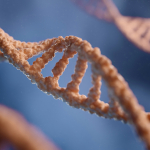International 15q Day Date in the current year: November 15, 2026
 International 15q Day is observed annually on November 15. This international awareness day was created to raise awareness of neurodevelopmental disorders caused by changes in the q11-q13 region of chromosome 15, which include Prader-Willi syndrome, Angelman syndrome, and Dup15q syndrome.
International 15q Day is observed annually on November 15. This international awareness day was created to raise awareness of neurodevelopmental disorders caused by changes in the q11-q13 region of chromosome 15, which include Prader-Willi syndrome, Angelman syndrome, and Dup15q syndrome.While mutations in chromosome 15 can cause many genetic conditions, three specific conditions are caused by changes in the 15q11-13 region. Prader-Willi syndrome occurs when the paternal copy of the 15th chromosome is missing information in this region. Angelman syndrome occurs when the maternal copy is missing information. Dup15q syndrome occurs when either the paternal or maternal copy of the chromosome has extra information.
Since all three syndromes involve abnormalities in the same region of chromosome 15, they have several shared symptoms, including hypotonia (low muscle tone), moderate to severe developmental delay and intellectual disability, seizures, sleep disturbances, speech and behavioral issues, anxiety, gastrointestinal issues, strabismus (eye misalignment), and decreased pain sensitivity.
Despite these overlaps, each condition has unique distinguishing features. For instance, Prader-Willi syndrome (PWS) is characterized by hyperphagia, or an abnormally strong and constant sensation of hunger, which often leads to overeating, obesity, and type 2 diabetes. Other common features of PWS include small hands and feet, short stature, and hypogonadism with delayed or incomplete puberty, which can lead to complications such as infertility and osteoporosis.
Angelman syndrome (AS) is characterized by severe speech impairment, a persistently happy disposition with frequent smiling and laughter, abnormal food-related behaviors, a fascination with water, balance and movement problems (ataxia), and microcephaly (a small head) that develops in infancy.
Dup15q syndrome is commonly associated with autism spectrum disorder and includes features such as repetitive behaviors, social communication deficits, and an inability to maintain eye contact. It is considered the most common genetic cause of autism. Dup15q syndrome is also characterized by epilepsy that is distinct in pattern and severity from that seen in Angelman syndrome or Prader-Willi syndrome. There is an increased risk for SUDEP (sudden unexpected death in epilepsy).
Like most genetic diseases, 15q syndromes currently have no approved cure. Treatment is symptomatic and may include anticonvulsant medications for seizures, melatonin for sleep disturbances, and physical, occupational, and speech therapies, as well as early intervention for developmental delay.
Due to their rarity and lack of awareness, all three 15q syndromes are often misdiagnosed. International 15q Day was created to educate medical professionals and the general public about these syndromes and to support patients and their families worldwide. You can get involved by learning more about 15q syndromes, sharing what you’ve learned with others, donating to an organization that helps patients and their families, and spreading the word on social media.
- Category
- International Observances
- Tags
- International 15q Day, awareness days, Prader-Willi syndrome, Angelman syndrome, Dup15q syndrome